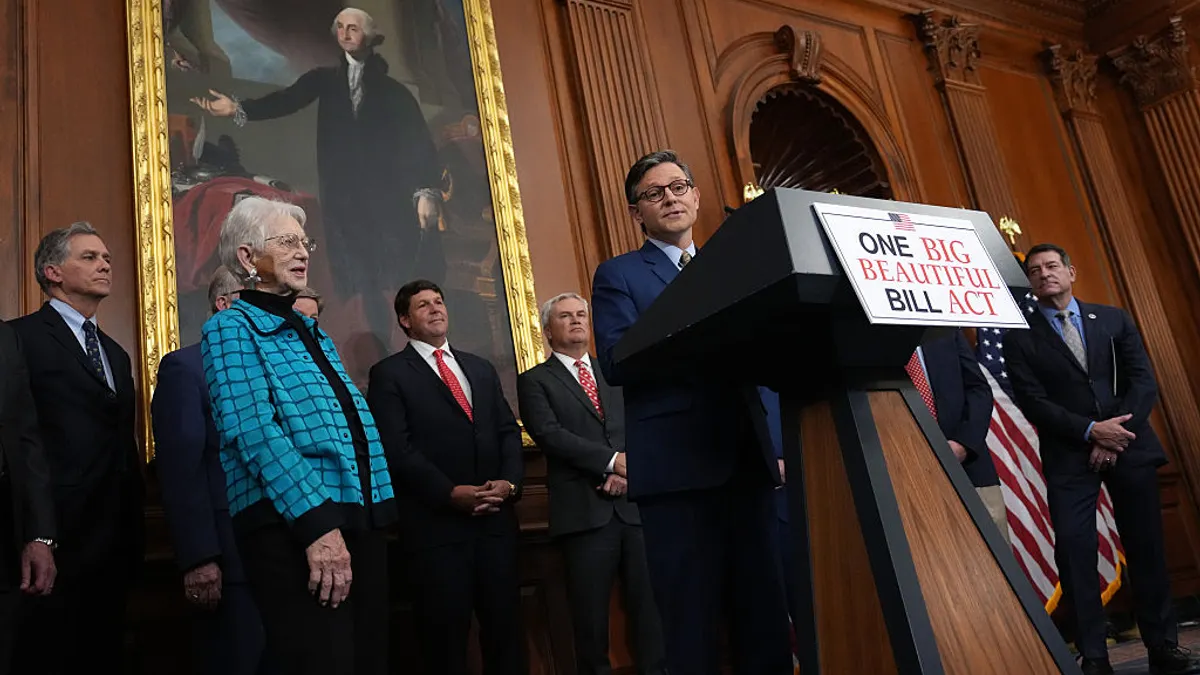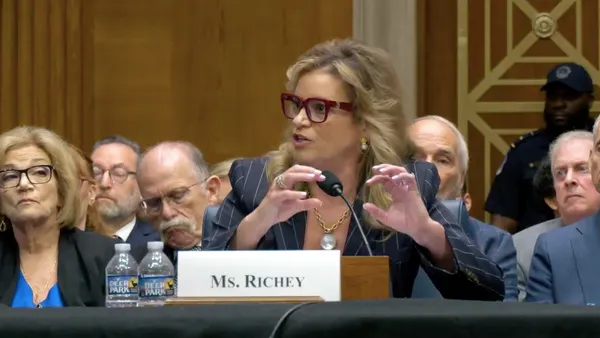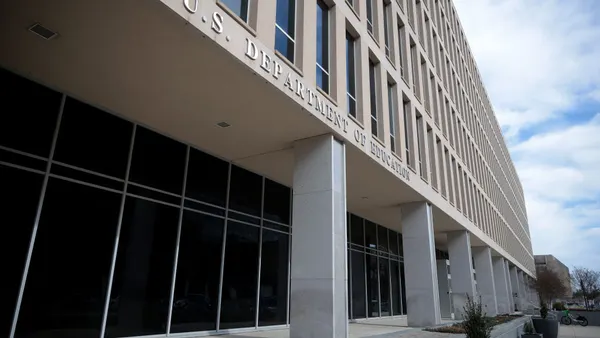A proposal for a federal private school choice tax incentive under consideration in Congress would increase disparities in access to high-quality education and deplete much-needed funding from public schools, the bill's opponents said during a Thursday webinar cohosted by AASA, the School Superintendents Association.
"It's nothing short of theft," said Denise Forte, president and CEO of EdTrust, a nonprofit organization that helps improve outcomes for students of color.
Forte and others raised concerns about the Educational Choice for Children Act, a Republican-backed bill that was included in a massive tax and spending package, which was narrowly approved by the House on Thursday morning.
"It's taking dollars away from programs that would strengthen all schools, expand access to early childhood, make sure that our kids have access to mental health counselors, to other mental health supports — resources our students need that you are not going to get from the private marketplace," Forte said.
Under the plan, donors could make charitable contributions toward tuition or other expenses at public, private and religious K-12 schools and receive a dollar-for-dollar tax break for their contributions. The donations would be managed by a scholarship-granting organization that would distribute them to participating families to use toward education expenses.
The total credits are capped at $5 billion per year from 2026 through 2029. It would be the first federally funded private school tax credit program available across the country.
Amy Hanauer, executive director of the Institute on Taxation and Economic Policy, said no other federal charitable giving program provides as high of a tax incentive as this program proposes. The institute estimates that, as proposed, the bill would reduce federal tax revenue by $23.2 billion over the next 10 years.
Hanauer said, as it is designed, ECCA allows those who donate gifts of corporate stocks to avoid capital gains tax on those donations. The result, she said, "would be a profitable tax shelter for wealthy people who agree to help funnel public funds into private schools."
This means donors would get more money by contributing their stock to the educational choice program than by selling their stock, Hanauer said.
Jacqueline Rodriguez, CEO of the National Center for Learning Disabilities, said that although the ECCA has a provision that seems to require participating private schools to follow the individualized education program of a student with disabilities, not all civil rights protections will transfer.
"This is not something that parents should be looking at as an opportunity," said Rodriguez. That's because private schools don't have to abide by students' and families' rights under the Individuals with Disabilities Education Act.
She also questioned if the Internal Revenue Service — as the federal agency overseeing tax law compliance — would enforce students' IEPs in private school settings. "That's not something that the public is expecting the IRS or any other agency outside of the Department of Education to provide," Rodriguez said.
The tax and spending proposal — titled "One Big, Beautiful Bill" — will now be debated by the Senate.
Supporters of the measure said the tax incentive will give more parents options for their children's education. After the House approved the spending package Thursday, ACE Scholarships, a nonprofit scholarship granting organization, said in an emailed statement that the ECCA "represents a generational opportunity to empower parents in all 50 states, offering opportunity and hope for millions of students who have long been pushed into a one-size-fits-all education system.”








 Dive Awards
Dive Awards




